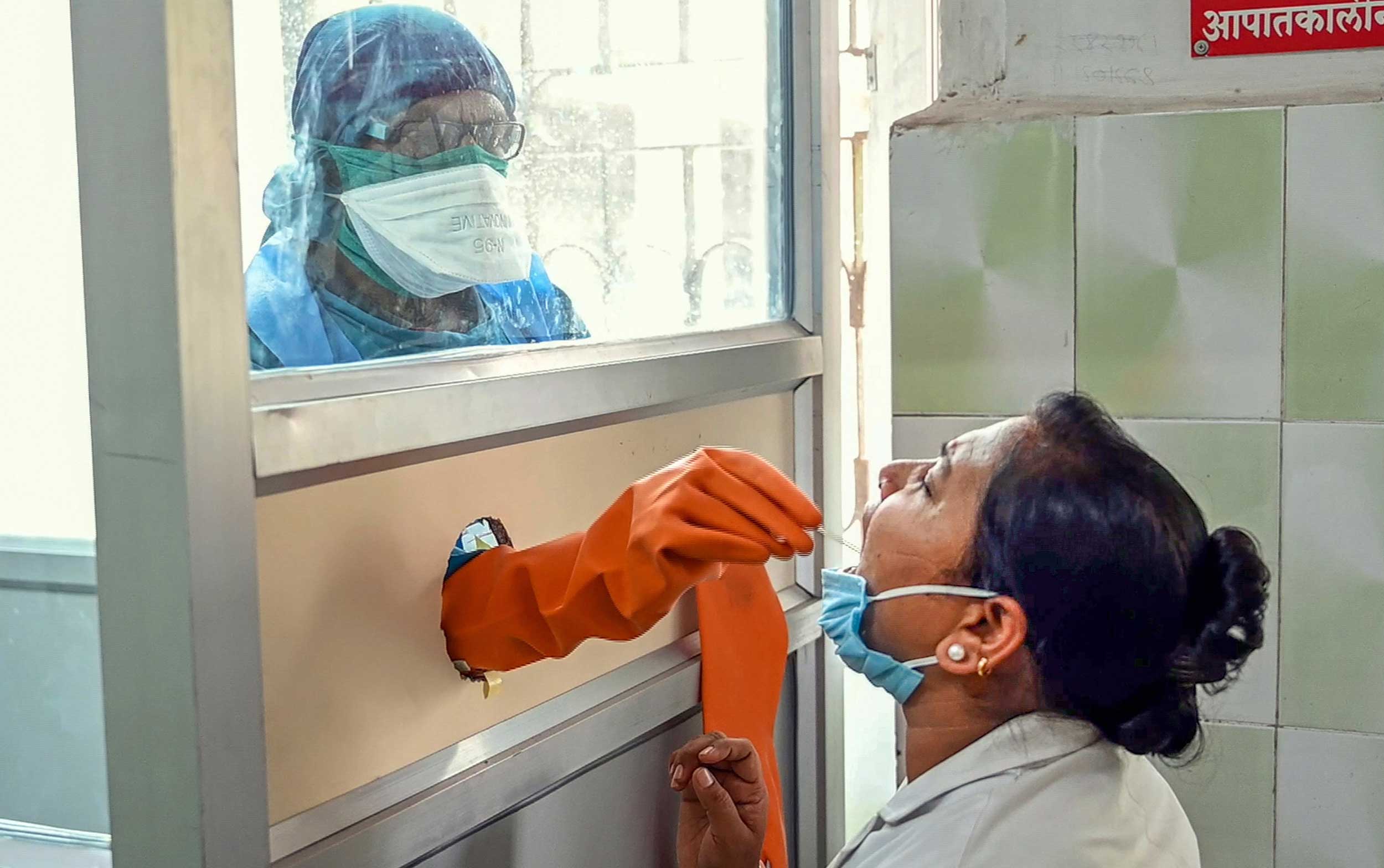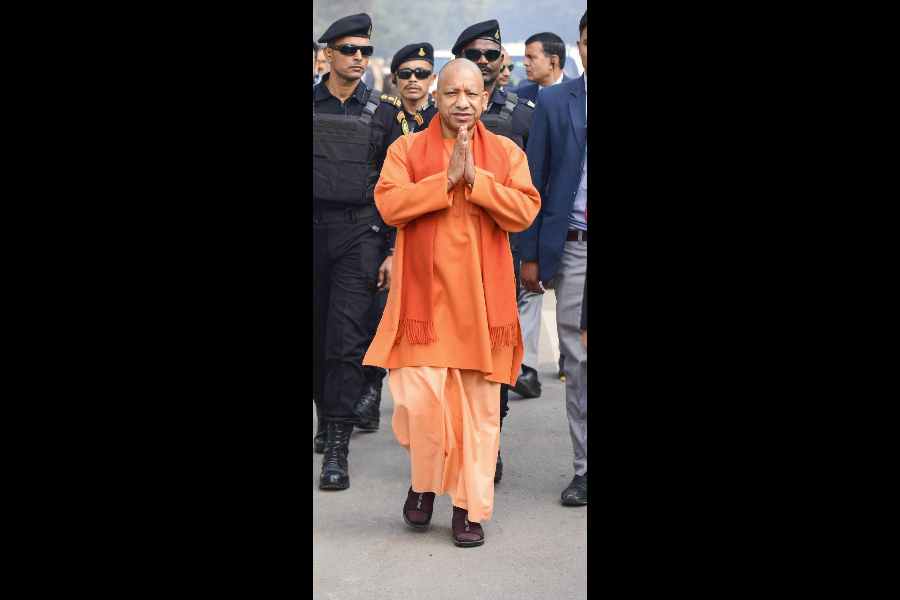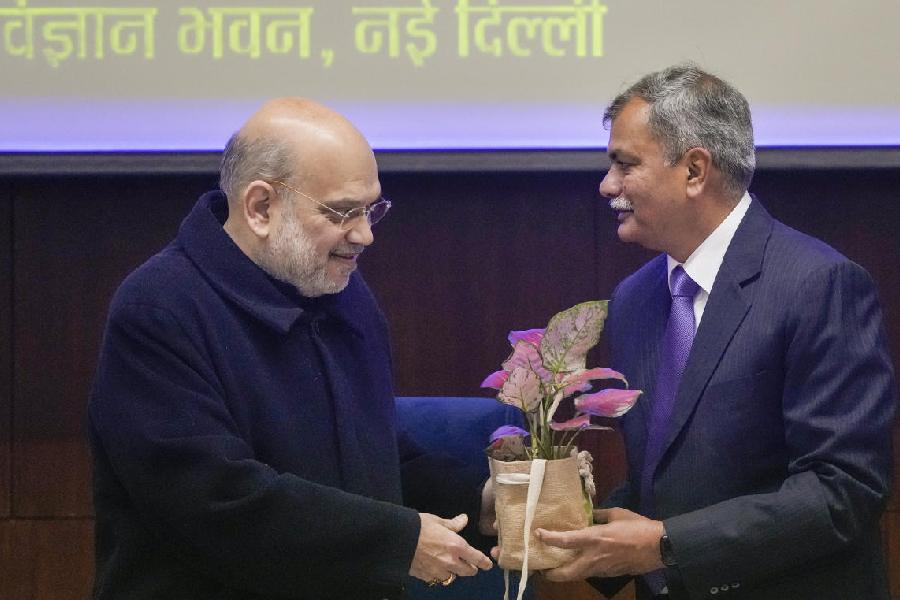Blood samples of about 100 residents of Belgachhia and Howrah were collected on Monday for rapid antibody tests for Covid-19.
The rapid tests, though not confirmatory, can determine the presence of antibodies, which in turn would suggest the person was infected and the locality where he or she lives could have more infected people.
Teams from the Institute of Post Graduate Medical Education and Research (SSKM Hospital) conducted the tests that went on till late in the evening, health department officials said.
Avijit Chowdhury, a member of the committee of experts set up by the state government to combat Covid-19, said if someone tests positive in the rapid test, it would mean “the virus has reached the locality”.
“These are antibody-based tests. If a virus enters the human body, we develop an antibody to fight it. If there is presence of an antibody in a person, it would mean that the virus had entered the person and reached the locality (where he is staying),” Chowdhury said.
Unlike the RT-PCR tests conducted till Sunday, where throat and nasal swabs are collected, the rapid tests are conducted on blood drawn from the person.
But a negative report for the antibody test does not necessarily rule out Covid-19. “The antibody develops in the human body at least a week from the day the virus infects the person. So it may be that an antibody has not developed when the test is being done. In such a case, the rapid test result would be negative but the person may have actually been infected by the virus,” Chowdhury said.
But there is also no reason to panic if a person tests positive for the test, he said. “Each person who tests positive in the antibody-based test must undergo a RT-PCR (swab) test to confirm Covid-19,” Chowdhury said. “There is no need to panic. The swab tests must be conducted on a larger scale and we are already working on it.”
Several public health professionals said despite the antibody tests being non-confirmatory, they are done to understand the spread of the infection.
A health department official said that a 30-member-team of technicians at SSKM Hospital has been trained to conduct the rapid tests. The SSKM team will conduct tests in Calcutta, Howrah, Hooghly and South 24-Parganas.
Belgachhia and parts of Howrah, where the tests were conducted on Monday, have been under stringent lockdown for the past few days.
The health department team that conducted the tests was accompanied by officials of the Calcutta and Howrah municipal corporations.
“We have been carrying out door-to-door surveillance in all densely populated areas or places from where multiple cases have been reported. So we have an idea who has symptoms for more than seven days. Samples will be collected from people identified during such screening,” said an official of the Calcutta Municipal Corporation (CMC).
Those who test positive in the rapid tests would be quarantined for at least seven days, a CMC official said. Those who test negative, too, would be asked to remain in isolation for a week.
“If doctors suspect that a person who tests negative in rapid tests has symptoms that suggest s/he could be a Covid-19 patient, a swab test must be conducted on that person,” a CMC doctor said.
Though rapid tests would initially be conducted only in containment zones initially, places where no cases have been reported would be covered later, in keeping with the ICMR guidelines.











